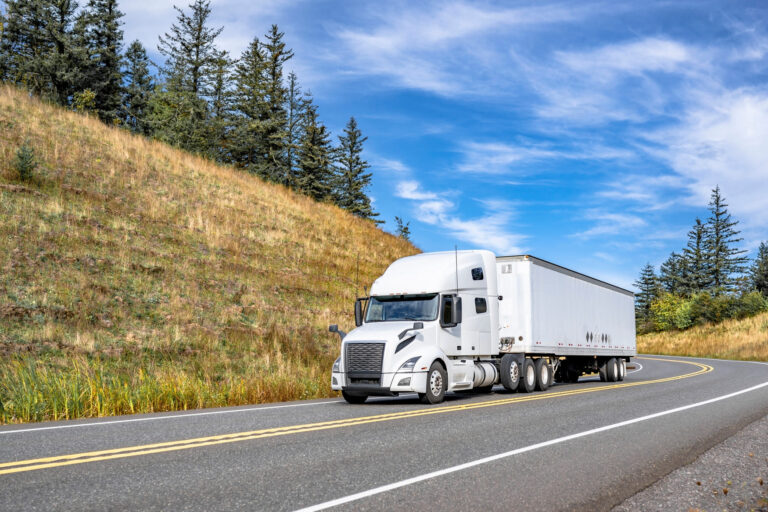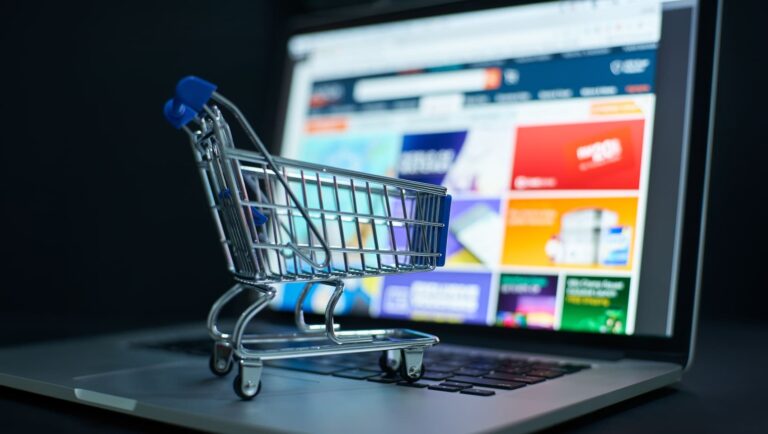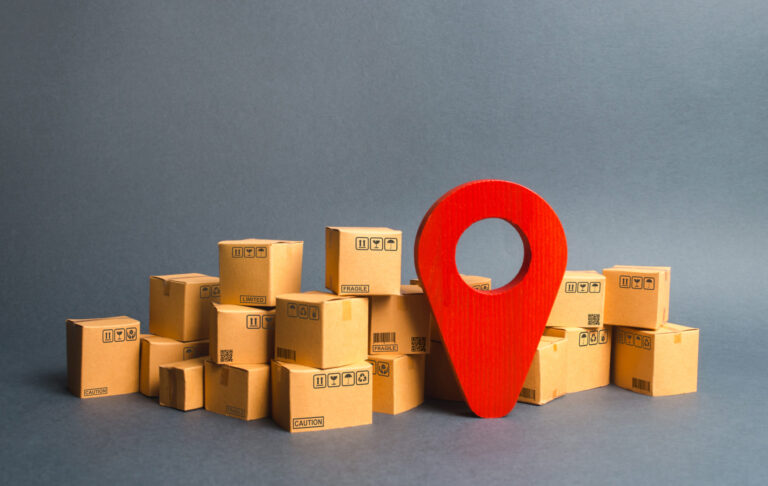Finding Reliable Freight Carriers and 3PL Partners: A Down-to-Earth Guide

Struggling to get your products to market on time and on budget? You’re not alone. Small businesses, freight brokers, logistics managers, and e-commerce companies across the U.S. often feel the pain of finding a reliable freight carrier or third-party logistics (3PL) partner. In an industry where trucks move over 70% of U.S. freight , even amid a historic driver shortage of around 80,000 drivers in 2021 (a figure the American Trucking Associations warns could double by 2030), it can feel like finding a needle in a haystack. All this means that sourcing the right carrier or 3PL partner is both more challenging and more crucial than ever for keeping your business moving.
A 3PL (third-party logistics) provider handles outsourced warehousing, transportation, and order fulfillment for other businesses. In contrast, a freight carrier is an asset-based company (with trucks, ships, etc.) that moves goods for shippers, while freight brokers simply connect shippers to carriers. This guide explains where to find reliable freight carriers and 3PL partners, how to vet them, common pitfalls, and emerging trends. We include actionable tips and industry stats (with sources) to help you secure a partner you can trust.
Where Do Businesses Find Freight Carriers and 3PL Partners?
Cast a wide net. Shippers and brokers use multiple channels to find carriers or 3PLs:
Online Load Boards and Freight Marketplaces
Posting your shipment on a load board (like DAT or Truckstop) quickly broadcasts your freight to many carriers. In fact, these online marketplaces are often “the first place many shippers and brokers go to find available freight carriers”. Load boards typically require a subscription fee, but they give broad reach and competitive bids. (Example: DAT, Truckstop.com.) The trade-off is you must carefully vet respondents to avoid unreliable providers.
Referrals and Industry Networks
Word-of-mouth recommendations remain powerful in logistics. Around 16% of e-commerce merchants say they find a 3PL partner through referrals or peers. Industry contacts, fellow business owners, or trade associations can steer you to trustworthy partners. If a colleague has already vetted a 3PL or carrier, that personal recommendation can save you time.
Digital Freight Platforms and Apps
New “digital freight brokers” and transportation management systems (TMS) let shippers source carriers through apps or online tools. Platforms like Convoy, Uber Freight, or Freightos offer instant quotes and booking with carriers, providing transparency on rates and tracking. These tools leverage technology (AI and big data) to match shippers with available capacity. A digital marketplace can be an efficient way to compare multiple carriers or 3PL quotes in one place.
Industry Associations and Directories
Trade groups, directories, and events can connect you to vetted carriers and 3PLs. For example, the ATA or local trucking associations list certified carriers. The U.S. Dept. of Transportation even publishes a Motor Carrier Census you can query (via third-party sites) to find all carriers registered in a region. Attending logistics conferences, trade shows or joining shippers’ councils also exposes you to providers. Don’t overlook simply googling “freight carrier + [your area]” – and then checking the FMCSA SAFER database to review each candidate’s safety and compliance profile.
By combining these channels – load boards, referrals, digital tools, and industry networks – you’ll compile a healthy list of potential freight carriers and 3PL providers. The goal is to compare options and not rely on a single source.
Vetting Freight Carriers and 3PL Providers
Once you have leads, evaluate each candidate carefully. Here are key vetting steps:
- Check Experience and Fit. Ensure the carrier or 3PL has experience with your industry and shipment type (e.g. hazmat, refrigerated, oversized). Ask about their typical customers or niche. Some 3PLs specialize in e-commerce fulfillment, others in heavy industrial freight. It’s important to find out what a 3PL’s niche is. Make sure their capabilities (warehouse locations, transport modes) align with your needs.
- Review Safety and Certifications. Freight carriers must comply with regulations. Verify they have a valid DOT number and appropriate insurance. Use the FMCSA SAFER database to check safety records and violations. If hauling specialized goods, confirm certifications (e.g. HAZMAT endorsement, FDA or DEA approved warehousing). For 3PLs, ensure their warehouses are certified for your product type. Reliable partners will proudly share safety credentials.
- Assess Customer Service and Communication. A top concern is how responsive a provider is. 3PLs and carriers with strong customer service save you money and headaches. During your inquiry, note if they answer questions clearly and promptly. Ask how you’ll get shipment updates (phone, email, portal) and who your point of contact will be. Transparency and communication are vital: you need to trust that they will notify you immediately of any delays or issues.
- Understand Pricing and Terms. Obtain detailed quotes that outline all fees. Watch for hidden Logistics costs – common extra charges include fuel surcharges, accessorial fees (liftgate, detention, residential delivery), or storage fees. Some 3PLs charge per-pallet warehousing or per-order fulfillment fees. Ask the provider to break down each charge and any thresholds that trigger extra fees. True partners will be upfront about pricing, as one carrier platform emphasizes “no hidden fees” with instant transparent quotes. Compare multiple quotes to ensure competitiveness.
- Check References and Track Record. Ask the provider for references or case studies with similar clients. A reputable 3PL or carrier should have testimonials or reviews. If possible, speak directly with existing customers about their reliability and any issues. You want partners who consistently meet on-time pickup/delivery commitments.
- Technology and Tracking Capabilities. In modern logistics, visibility is expected. See if the carrier or 3PL offers real-time tracking or a client portal. Does the 3PL use a warehouse management system (WMS) or your TMS integrate with their system? Superior partners invest in tech (like RFID or IoT sensors) to track shipments, which helps avoid lost shipments. Those with strong IT can troubleshoot quickly if something goes wrong.
- Scalability and Flexibility. Plan for growth. The right partner should scale with you. If you have seasonal spikes or expanding territories, ensure they have the capacity. The 3PL you choose should be able to propel your business forward and keep up with constant growth. Also confirm contract terms: some 3PLs require long commitments while others (like Olimp Warehousing) offer pallet-by-pallet storage with no long-term lease.
By following these steps- a combination of background checks, quotes review, and direct questions – you’ll filter out unreliable options.
Trends Influencing How Companies Choose Logistics Partners
The landscape of freight and 3PL partnerships isn’t static, it’s evolving with broader trends in technology, business, and consumer expectations. Here are a few key trends that are shaping how small businesses and logistics managers pick their carrier and 3PL partners:
Surging 3PL Market and E-commerce
The 3PL sector is booming. A recent report valued the global 3PL market at $974.6 billion in 2022, projected to $1.3 trillion by 2026 (CAGR 8%). In the U.S. alone there are ~24,400 3PL firms (up 2.1% in a year). E-commerce is a major driver: online retailers account for over 50% of 3PL revenue. In practice, this means more options but also more noise – leverage tech and data to filter the right match.
Digital and Real-Time Tools
Advances in technology are changing expectations. Shippers want real-time tracking, mobile updates, and data analytics. Carriers and 3PLs with modern TMS/WMS systems give greater visibility and efficiency. AI and automation can even predict delays and optimize routing. When evaluating partners, consider their tech stack, those who invest here are often more responsive and able to sync with your platforms.
Sustainability and Green Logistics Considerations
Sustainability is becoming a key factor in logistics decisions. With 87% of shippers aiming to cut emissions by 2025, many now evaluate carriers and 3PLs on fuel efficiency, route optimization, and carbon reporting. Some even include sustainability questions in RFPs. While price and service still matter most, eco-conscious partners, those using green tech or offering carbon offset options, are gaining an edge. As demand grows, businesses are looking for partners who balance cost, reliability, and environmental impact.
Keeping an eye on these trends will ensure you pick a partner who meets today’s needs and is prepared for tomorrow’s demands.
Final Tips for Choosing the Right Freight Carrier or 3PL
To wrap up, here are some actionable tips:
- Start Small and Test. For a new partner, try a small shipment or short-term contract first. Gauge their performance on a low-stakes project before scaling up.
- Get Multiple Quotes. Always compare at least 2–3 providers on price, services, and terms. This also gives you leverage in negotiations.
- Clarify Contracts. Ensure service-level agreements (SLAs) are in writing: on-time delivery guarantees, claims processes, penalty for delays, etc.
- Stay Involved. Even after selecting a partner, maintain oversight. Regular reviews of performance (delivery times, costs, communication quality) will keep the relationship strong. Provide feedback – good partners will appreciate it and improve.
- Leverage Technology. Use tracking and analytics tools to monitor your shipments across carriers. Many 3PLs allow dashboard access or integrations so you can always see where your goods are.
- Build Partnerships. Treat your 3PL or carrier as an extension of your team. A collaborative relationship often yields better service (for example, Olimp’s customers benefit from a dedicated Partner Success Manager who coordinates logistics end-to-end).
By following these tips and keeping the above considerations in mind, you’ll be in a much stronger position to find reliable freight carriers and 3PL partners. The goal is not just to get goods delivered, but to build a partnership that supports your business growth.
Partner with Olimp Warehousing
If you need a full-service 3PL and warehousing solution, Olimp Warehousing offers nationwide logistics support tailored to small businesses and e-commerce companies. With thousands of warehouse partners across North America, Olimp provides flexible, on-demand storage and fulfillment services. Whether you require short-term storage, cross-docking, or a dedicated fulfillment center, Olimp’s platform instantly matches your freight to nearby facilities. Our transparent pricing and 24/7 support help keep your supply chain moving.
Interested in learning more? Visit Olimp Warehousing to request a quote or explore our freight broker services and carrier solutions. Let us handle the logistics, so you can focus on growing your business.
You may be interested in

Hidden Logistics Costs in E-Commerce: Surprises and Tips
Online retailers often focus on base shipping rates and warehouse fees, but e-commerce logistics costs include many hidden charges. For example, fuel surcharges and peak-season fees vary with oil prices and demand. Port and handling fees (Terminal Handling Charges) can add $50–$200+ per container. Other fees like detention, last-mile tolls, and currency conversion may quietly […]

The Gen Z Factor: Smarter Delivery Strategies to Offset Slowing E-commerce Growth
As the pandemic-fueled e-commerce boom unwinds, online sales growth has dipped to only ~6% annually (far below the 18–20% peaks of 2020–21). In this tight market, Gen Z (roughly ages 18–35) is the bright spot: they’re the largest driver of current growth. A recent Descartes/SAPIO survey of 8,000 North American and European shoppers found that […]

Warehouse Location Strategy in the USA: 10 Key Factors to Optimize Costs & Delivery Speed
Choosing the ideal warehouse location is a strategic cornerstone for any logistics or freight business. A strategically sited warehouse drastically reduces shipping times and costs, boosts customer satisfaction, and strengthens competitiveness. In fact, strategic warehouse site selection can lower total logistics costs by 10–30% and improve delivery times by 15–40%. For example, placing inventory near […]
Ready to streamline your warehousing needs?
Request a quote today and discover how OLIMP's tailored solutions can optimize your operations